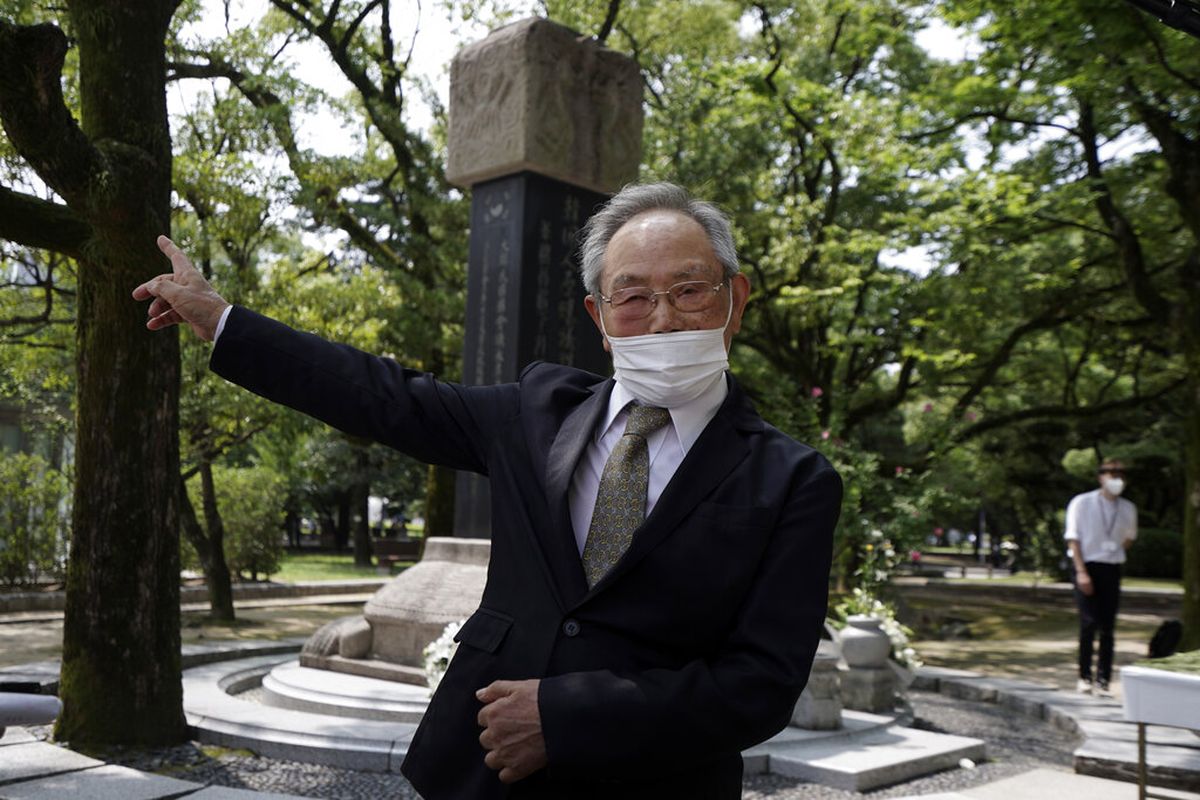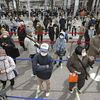Hiroshima Survivors Tell Tales of the Atomic Bomb They Want the World to Remember

Hiroshima has become a beautiful place, but atomic bombs still exist, she says, and another nuclear attack would destroy the world.
___
Lee Jong-Keun, 92
Lee kept his secret as an atomic bombing survivor for nearly 70 years, not even telling his wife, always fearing people might notice the burn marks on the face.
But today Lee, a second-generation Korean born in Japan, is training young people to tell survivors' stories. He also wants them to learn about the difficulty that Koreans have faced in Japan.
“Survivors won't be here 20 years from now, but our stories must be,” said Lee, who will meet Prime Minister Shinzo Abe after Thursday's memorial to demand Japan do more to ban nuclear weapons.
Some 20,000 ethnic Korean residents of Hiroshima are believed to have died in the nuclear attack.
The city had a large number of Korean workers, including those forced to work without pay at mines and factories under Japan’s 1910-1945 colonization of the Korean Peninsula.
At a memorial Wednesday for Korean victims, Lee laid flowers and prayed for those who perished.
“I ask younger people to never forget us and to understand the tragedy, absurdity and cruelty of the war so that nuclear weapons will be eliminated from the world as soon as possible.”
On the morning of Aug. 6, 1945, 16-year-old Lee watched the blue summer sky turned yellowish orange. He suffered burns on his face and neck that took four months to heal.
When he returned to work, co-workers stayed away, saying he had “A-bomb disease.” He decided not to tell anyone about the atomic bombing.
That would only “double” his suffering when he was trying hard to hide his Korean identity.
His parents talked in Korean and wanted him to learn the language, but he didn’t like going outside with them, fearing people would notice their Korean accent.
So Lee lived under a Japanese name, Masaichi Egawa, until eight years ago when he began speaking out.
“To tell my story, I had to explain why Koreans are in Japan,” he said. “Now I have nothing to hide.”
___
Keiko Ogura, 84
Remembering the atomic bombing and how she survived is painful, but Keiko Ogura is determined to keep telling her stories as she organizes English guided tours for foreign visitors at Hiroshima's Peace Memorial Park.
Ogura established Hiroshima Interpreters for Peace in 1984 to translate survivors’ stories, including her own.
“In the beginning, it was really painful to remember those days,” she said at a recent online briefing.


































